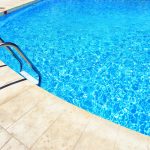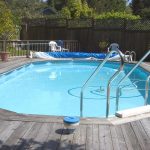Pools Opening Earlier than Usual – Special Considerations
OPEN SEASON
During our current stay-at-home culture, residential swimming pools are opening earlier than normal. With the family home and vacation plans being cancelled, the backyard pool has become an important source of entertainment and relaxation in 2020. With earlier opening dates and an extended swim season on the horizon, owners and operators need to be vigilant with pool maintenance procedures.
SQUEAKY CLEAN
With an extended swim season, you may need to clean your pool more than in previous seasons. Spring usually brings lots of rain and storms which will add debris into your pool and alter water chemistry. Although you may have a weekly service provider coming to clean your pool once a week, these pop-up storms don’t schedule accordingly. It is recommended to remove any debris, leaves, bugs, etc. brought on by the storm as soon as possible and not wait for your weekly service. Removing as much as possible, as soon as possible, will help eliminate stain sources and have less effect on your water chemistry and chlorine. At the very least, you can use your skimmer net to remove surface debris and empty out skimmer baskets in between your scheduled visits.
I CAN’T, I’M ALLERGIC
Being open in the early spring means that your pool may also be affected by allergy season. Pollen is a very fine powder produced by trees, flowers, grasses, and weeds. This pollen is a common irritant to allergy sufferers and will coat cars, blow into open windows, and land in your pool. This pollen will float on the surface of your pool sticking to tile lines and adhering to skimmers and faceplates. If it does settle to the bottom, it will move freely when pushed as opposed to algae which require brushing to remove it from the surface. The best way to remove pollen is skimming often, backwashing/cleaning filters more frequently as pollen can clog filter media, shocking your pool, and running the circulation system more often than usual. You may also consider putting a skimmer sock in your skimmer to collect the pollen instead of drawing it into your circulation system and coating your filter media. It is important to understand that pollen does contain phosphates which can lead to algae growth.
AS CLEAR AS MUD
Phosphates are essentially food for algae. Phosphates can get into your pool water from the environment, through your fill water, and from specialty products you might be using. Obviously, removing environmental contaminants such as bugs, pollen, and leaves as soon as possible will help limit phosphates. You should have your fill water checked for phosphates levels as many towns are adding phosphates to the water. If you are using a specialty product, be sure to read the ingredients so you know if you are mistakenly adding phosphates to your pool. Also be aware that your landscaper or landscaping efforts utilize phosphates which can easily become airborne and land in your pool. If you are aware that these phosphates are getting into your pool regularly, you may want to consider using a phosphate remover as part of your regular maintenance procedure.
EVERYBODY IN THE POOL
Now, you are aware of the efforts you need to take to ensure your pool is swimmable. We can help develop a personalized plan for your pool. Take the steps now to make sure you can maximize your swim days in the extended 2020 pool season!






